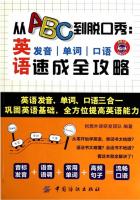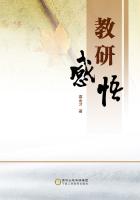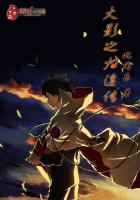“What is it? What‘s wrong with my baby?” she demanded.
Her doctor would not answer at first, but when she insisted on a response, he could offer my mother only a specialized medical term.
“Phocamelia,” he said.
Because of her nursing background, my mother recognized the term as the condition babies have when they are born with malformed or missing limbs. She simply couldn’t accept that this was true.
In the meantime, my stunned dad was outside, wondering whether he had seen what he thought he saw. When the pediatrician came out to speak to him, he cried out, “My son, he has no arm!”
“Actually,” the pediatrician said as sensitively as possible, “your son has neither arms nor legs.”
My father went weak with shock and anguish.
He sat stunned, momentarily unable to speak before his protective instincts kicked in. He rushed in to tell my mother before she saw me, but to his dismay he found her lying in bed, crying. The staff had already told her the news. They had offered to bring me to her but she refused to hold me and told them to take me away.
The nurses were crying. The midwife was crying. And of course, I was crying! Finally they put me next to her, still covered, and my mum just couldn‘t bear what she was seeing: her child without limbs.
“Take him away,” she said. “I don’t want to touch him or see him.”
To this day my father regrets that the medical staff did not give him time to prepare my mother properly. Later, as she slept, he visited me in the nursery. He came back and told Mum, “He looks beautiful.” He asked her if she wanted to see me at that point, but she declined, still too shaken. He understood and respected her feelings.
Instead of celebrating my birth, my parents and their whole church mourned. “If God is a God of love,” they wondered, “why would He let something like this happen?”
MY MUM‘S GRIEF
I was my parents’ firstborn child. While this would be a major cause for rejoicing in any family, no one sent flowers to my mum when I was born. This hurt her and only deepened her despair.
Sad and teary-eyed, she asked my dad, “Don‘t I deserve fl owers?”
“I’m sorry,” Dad said. “Of course you deserve them.” He went to the hospital flower shop and returned shortly to present her with a bouquet.
I was aware of none of this until the age of thirteen or so, when I began to question my parents about my birth and their initial reaction to my lack of limbs. I‘d had a bad day at school, and when I told my mum, she cried with me. I told her I was sick of having no arms and legs. She shared my tears and said that she and my dad had come to understand that God had a plan for me and one day He would reveal it. My questions continued over time, sometimes with one parent, sometimes with both. Part of my search for answers was natural curiosity and part of it was in response to the persistent questions I’d been fielding from curious classmates.
At first, I was a little scared of what my parents might tell me, and, since some of this was difficult for them to delve into, I didn‘t want to put them on the spot. In our initial discussions my mum and dad were very careful and protective in their responses. As I grew older and pushed harder, they offered me deeper insights into their feelings and their fears because they knew I could handle it. Even so, when my mum told me that she didn’t want to hold me after I was born, it was hard to take, to say the least. I was insecure enough as it was, but to hear that my own mother could not bear to look at me was . . . well, imagine how you might feel. I was hurt and I felt rejected, but then I thought of all that my parents have done for me since. They‘d proven their love many times over. By the time we had these conversations, I was old enough to put myself in her situation. Other than her intuitive feelings, there’d been no warning of this during her pregnancy. She was in shock and frightened. How would I have responded as a parent? I‘m not sure I would have handled it as well as they did. I told them that, and over time we went more and more into the details.
I’m glad that we waited until I was secure, knowing deep in my heart of hearts that they loved me. We‘ve continued to share our own feelings and fears, and my parents have helped me understand how their faith enabled them to see that I was destined to serve God’s purpose. I was a fiercely determined and mostly upbeat child. My teachers, other parents, and strangers often told my parents that my attitude inspired them. For my part, I came to see that as great as my challenges were, many people had heavier burdens than mine.
Today in my travels around the world, I often see incredible suffering that makes me grateful for what I have and less inclined to focus on what I may lack. I have seen orphaned children with crippling diseases. Young women forced into sexual slavery. Men imprisoned because they were too poor to pay a debt.
Suffering is universal and often unbelievably cruel, but even in the worst of slums and after the most horrible tragedies, I have been heartened to see people not only surviving but thriving. Joy was certainly not what I expected to find in a place called “Garbage City,” the worst slum at the edge of Cairo, Egypt. The Manshiet Nasser neighborhood is tucked into towering rock cliffs. The unfortunate but accurate nickname and the community‘s rank odor come from the fact that most of its fifty thousand residents sustain themselves by combing through Cairo, dragging its garbage there, and picking through it. Each day they sort through mountains of refuse pulled from a city of eighteen million residents, hoping to find objects to sell, recycle, or somehow make use of.
Amid streets lined with garbage piles, pig pens, and stinking trash, you would expect people to be overcome with despair, yet I found it to be quite the opposite on a visit in 2009. The people there live hard lives, to be sure, but those I met were very caring, seemingly happy, and filled with faith. Egypt is 90 percent Muslim. Garbage City is the only predominantly Christian neighborhood. Nearly 98 percent of the people are Coptic Christians.













